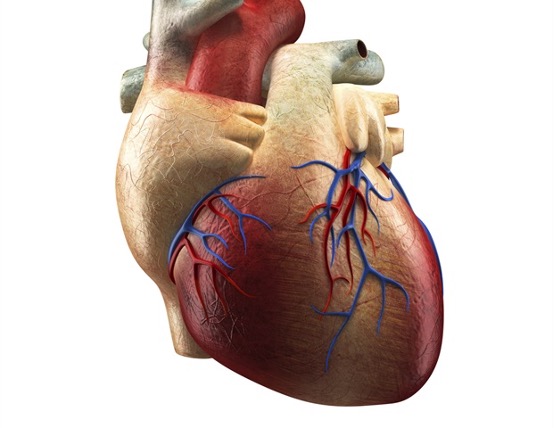ECLS does not improve survival in patients with acute myocardial infarction complicated by cardiogenic shock
August 30, 2023
Source: drugdu
 435
435

Early extracorporeal life support (ECLS) does not improve survival in patients with acute myocardial infarction complicated by cardiogenic shock who are scheduled for early revascularization, according to late breaking research presented in a Hot Line session today at ESC Congress 2023.
Cardiogenic shock is the leading cause of death in hospitalized patients with acute myocardial infarction. Evidence-based treatment is limited to immediate revascularisation of the culprit lesion. However, mortality remains high, reaching 40-50% within 30 days. Ongoing efforts to improve outcomes have led to an increase in the use of active mechanical circulatory support devices to achieve hemodynamic stabilization in severe shock. In particular, the use of venoarterial extracorporeal membrane oxygenation (VA-ECMO), also called ECLS, has risen by more than 10 times in recent years.
ECLS enables full circulatory and respiratory support, which differentiates it from other devices. However, evidence for ECLS in patients with cardiogenic shock and acute myocardial infarction is restricted to observational studies and three small randomized trials.7-10 The potential benefits of hemodynamic support might be outweighed by a considerable risk of device-associated local and systemic complications including bleeding, stroke, limb ischemia and hemolysis.
ECLS-SHOCK was the first randomized trial to investigate the effect of ECLS on mortality in patients with acute myocardial infarction complicated by cardiogenic shock. A total of 420 patients with acute myocardial infarction and cardiogenic shock scheduled for early revascularisation were enrolled from 44 centers in Germany and Slovenia. The median age of participants was 63 years and 19% were women. Patients were randomly assigned to early ECLS plus usual medical treatment (ECLS group) or to usual medical treatment alone (control group).
The primary endpoint was all-cause death at 30 days. Secondary endpoints included length of mechanical ventilation, time to hemodynamic stabilization and need for renal replacement therapy. Safety endpoints included moderate or severe bleeding and peripheral vascular complications requiring intervention
A total of 417 patients were included in the final analyses. The primary endpoint of all-cause death at 30 days occurred in 100 of 209 patients (47.8%) in the ECLS group and in 102 of 208 patients (49.0%) in the control group (relative risk [RR], 0.98; 95% confidence interval [CI] 0.80 to 1.19; p=0.81).
The median duration of mechanical ventilation was longer in the ECLS group: 7 days (interquartile range [IQR] 4-12) in the ECLS group versus 5 days (IQR 3-9) in the control group, Hodges-Lehmann estimate of the difference between groups, 1 (95% CI 0 to 2). The time to hemodynamic stabilization and rates of renal replacement therapy were similar between treatment groups.
Regarding safety endpoints, moderate or severe bleeding occurred more frequently in the ECLS group: 23.4% of patients in the ECLS group versus 9.6% of patients in the control group (RR 2.44; 95% CI 1.50 to 3.95). Peripheral vascular complications requiring intervention occurred also more often in the ECLS group: 11.0% of patients in the ECLS group versus 3.8% of patients in the control group (RR 2.86; 95% CI 1.31 to 6.25).
Holger Thiele (Principal Investigator, Professor, Leipzig Heart Centre at Leipzig University, Germany) said, "The results of ECLS-SHOCK demonstrated no reduction in 30-day mortality with early ECLS therapy and an increase in complications. The findings may lead to the discontinued routine use of these devices in clinical practice."
Reference:
https://www.news-medical.net/news/20230828/ECLS-does-not-improve-survival-in-patients-with-acute-myocardial-infarction-complicated-by-cardiogenic-shock.aspx
Read more on
- The first subject has been dosed in the Phase I clinical trial of Yuandong Bio’s EP-0210 monoclonal antibody injection. February 10, 2026
- Clinical trial of recombinant herpes zoster ZFA01 adjuvant vaccine (CHO cells) approved February 10, 2026
- Heyu Pharmaceuticals’ FGFR4 inhibitor ipagoglottinib has received Fast Track designation from the FDA for the treatment of advanced HCC patients with FGF19 overexpression who have been treated with ICIs and mTKIs. February 10, 2026
- Sanofi’s “Rilzabrutinib” has been recognized as a Breakthrough Therapy in the United States and an Orphan Drug in Japan, and has applied for marketing approval in China. February 10, 2026
- Domestically developed blockbuster ADC approved for new indication February 10, 2026
your submission has already been received.
OK
Subscribe
Please enter a valid Email address!
Submit
The most relevant industry news & insight will be sent to you every two weeks.



